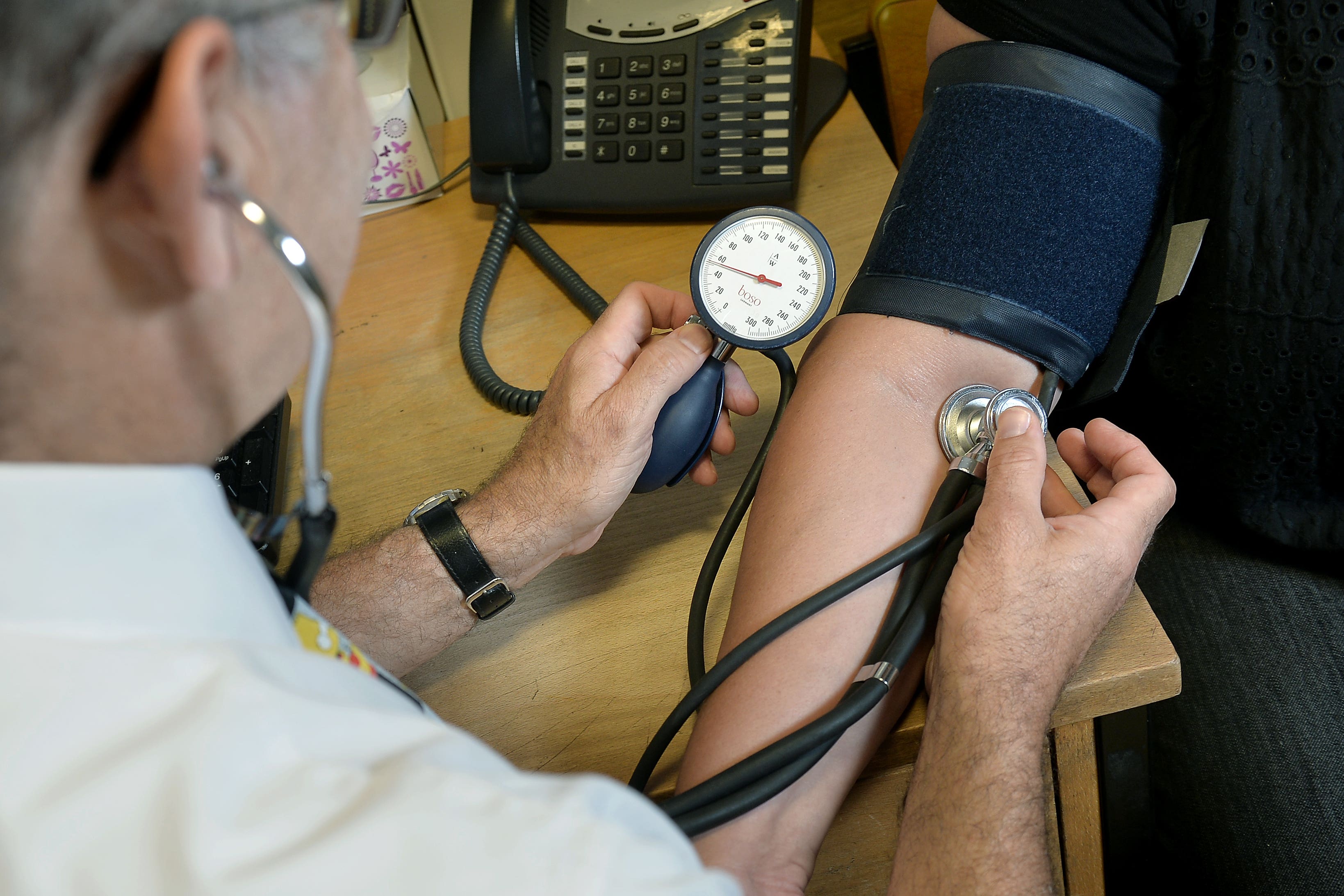Heart attack survivors face higher risk of developing other conditions – study
Researchers suggested patients could benefit from more support from clinicians for years after diagnosis.

People who survive heart attacks could face a greater risk of developing further serious health conditions for a decade afterwards, a study suggests.
Patients could benefit from additional support and monitoring in the years following diagnosis, researchers said.
They also suggested future studies should focus on identifying those at the greatest risk of adverse health conditions and on developing new strategies for prevention and early diagnosis.
While the greatest risk to heart attack survivors was heart failure and atrial fibrillation – which makes the heart beat faster and irregularly – the risk of other conditions such as kidney failure also increased.
The study by academics at the University of Leeds – part-funded by the British Heart Foundation (BHF) and Wellcome – analysed records of adults admitted to one NHS trust in England between January 1 2008 and January 31 2017.
Of the 145.9 million hospitalisation records, some 433,361 individuals had suffered a heart attack for the first time.
Researchers looked at their health outcomes over nine years compared with a control group of two million people of the same age and sex who had not had a heart attack.
The most likely condition was heart failure at 29.6%, compared to 9.8% in the control group.
However, kidney failure developed in 27.2% of heart attack survivors compared with 19.8% of other patients.
New hospitalisation for diabetes was also higher at 17% compared with 14.3% among patients who had not had a heart attack.
According to lead author Dr Marlous Hall, there are “around 1.4 million” heart attack survivors in the UK at risk of “further serious health conditions”.
Dr Hall, who is an associate professor of cardiovascular epidemiology at Leeds’ School of Medicine and multimorbidity research in the Leeds Institute for Data Analytics (LIDA), added: “Our study provides accessible online information of the risk of these health outcomes for specific age, sex and socioeconomic deprivation groups so that individuals surviving a heart attack can be well informed about their future risks, in order to support informed healthcare decision-making with their doctor.
“Effective communication of the likely course of disease and risk of adverse long-term outcomes between patients and healthcare professionals can promote positive lifestyle changes, encourage patients to stick to treatment and improve patient understanding and quality of life.”
Our study highlights the need for individual care plans to be revised to take into account the higher demand for care caused by survivorship
The BHF estimates that 100,000 people are admitted to hospital with heart attacks every year in the UK.
However, more than seven in 10 people now survive them.
“Our study highlights the need for individual care plans to be revised to take into account the higher demand for care caused by survivorship,” Dr Hall said.
The analysis showed the increased risk of heart failure among heart attack patients was 393%, while atrial fibrillation risk was 98%.
However, they were also found to be at a 77% greater risk of kidney failure, a 13% greater risk of vascular dementia and a 6% greater risk of depression.
The risk of cancer was lower overall among heart attack patients, according to the study.
Morag Foreman, head of discovery researchers at Wellcome, said the study “provides valuable insight into the types of support and interventions that may be needed for patients following a heart attack”.
“As survival rates following a heart attack improve, understanding the longer-term impacts on physical and mental health is crucial,” she added.
Professor Bryan Williams, chief scientific and medical officer at the BHF, said: “While more people than ever are surviving heart attacks, there can be longer term consequences.
“Particularly after a major heart attack, people can be left with irreparable damage to their heart, putting them at increased risk of heart failure.”
“This study sheds further light on how heart attacks are associated with increased risk of developing other serious health conditions, including heart failure and atrial fibrillation.
“It also found that those from more socioeconomically deprived backgrounds are at greater risk of further ill health after a heart attack, and at a younger age.
“The research suggests that these patients may benefit from additional support and monitoring to help reduce their risk of developing further health conditions.
“It is vital the NHS has the resource, including staff, infrastructure and equipment, to deliver the care that patients need to help them stay in the best possible health for longer.”
Bookmark popover
Removed from bookmarks